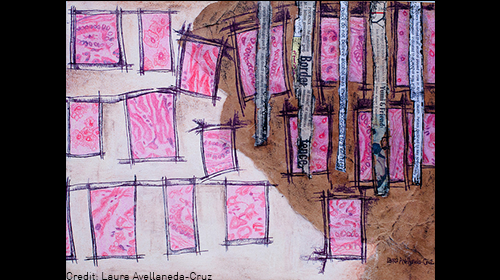
Racial disproportion is endemic in America. A new report on the impact of the housing crash provides fresh evidence of how families of different races are impacted disparately by economic forces.
According to a report by Haas Institute for a Fair and Inclusive Society (HIFIS) at UC Berkeley, neighborhoods populated with mostly Black and Latino families saw the greatest devastation of their equity and home value, and were significantly more vulnerable to foreclosure. In 14 out of the 100 hardest hit cities, Latinos and Blacks were 75% of the population. In 71 of the 100 hardest-hit cities, Blacks and Latinos account for at least 40% of the population. Three Washington cities were in the top 100 for highest incidence of negative equity: Tacoma, Kent, and Everett.
In Seattle, over 3,100 foreclosures occurred in 2013 alone. While only 11% of homeowners were still underwater on their mortgages, in the hard-hit ZIP codes those underwater were as high as 29%. Among them, Black and Latino homeowners were disproportionately more likely to be underwater.
The findings of racial inequality are not random, but instead the direct result of discriminatory lending practices. Many Black and Latino homeowners living in these “hot spots” were targeted and preyed upon by abusive and fraudulent banks and mortgage brokers. Low-income and middle-class minority borrowers living in predominately Black and Latino neighborhoods were steered towards predatory and subprime loans.
The housing recovery is also bypassing many communities. As professor and executive director of HIFIS john a. powell states, the report “reveals that a large part of the country is not only not recovering, it is largely being ignored. These are disproportionately Black and Latino communities.” (While at law school, I’ve had the opportunity to work as Professor powell’s research assistant.)
One’s environment has a profound impact on life outcomes, with opportunity decreasing and poverty increasing in communities with underwater and foreclosing homes. Researchers have repeatedly shown that high-poverty areas are significantly more likely to have underperforming schools, deficient employment, and public health risks. And where families live determines their access to higher education, public transportation, and jobs, not to mention the parks, libraries, pools and other facilities children have access to. Professor Powell (who is a former national ACLU legal director) explains that we are all situated within “opportunity structures,” which interact in ways that produced racially disparate outcomes for different groups.
The ACLU of Washington is taking on racial disproportionately in many areas. Among them are racial profiling by the Border Patrol on the Olympic Peninsula; racially biased practices by the Seattle Police Department; racial disproportion in the use of school discipline statewide; racial bias in the application of the death penalty; and the devastating impacts of the misguided war on drugs on communities of color. To learn more about our work, see this website’s Racial Justice section (https://www.aclu-wa.org/issues/racial-justice).




